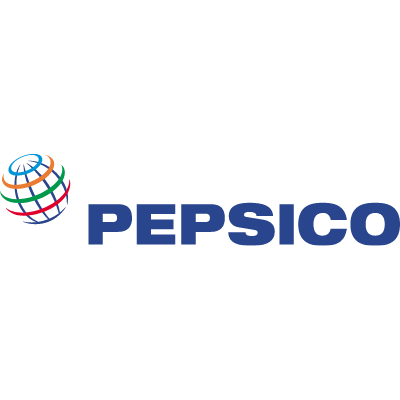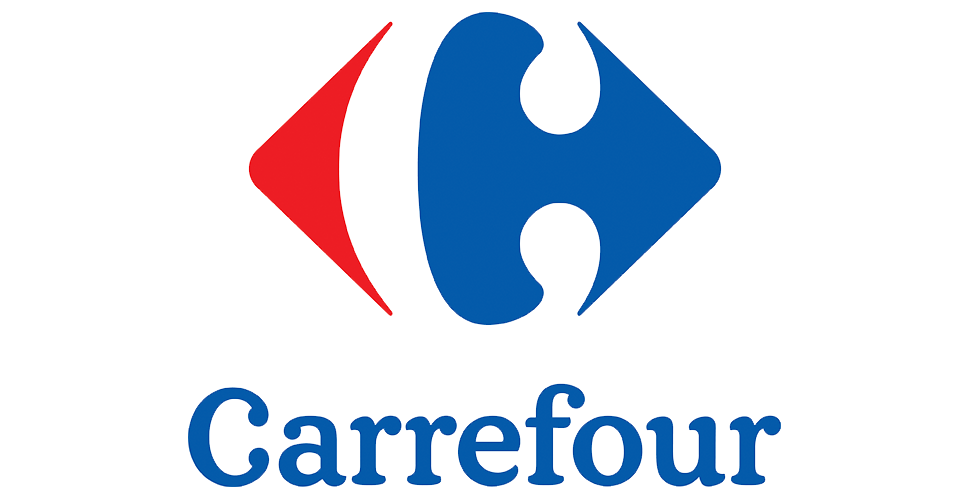Microsoft is investing 10 billion dollars in Open AI, the creator of the now famous ChatGPT. The tech industry giant intends to use ChatGPT primarily in its Bing search engine, but also in other software, such as Office and Azure. This reveal was immediately followed by Google announcing the upcoming release of its own search chatbot: Bard. Is artificial intelligence the future of search? Or maybe search is just what AI needs? And how will it affect business customers using Microsoft’s other software?
Artificial intelligence—are we there yet?
Artificial intelligence has been on everyone’s minds for a while now. It has made a huge splash lately with new algorithms for generating speech and images. However, let us put something straight: this is not general AI (the holy grail of AI research), the kind of cybernetic mind you see in science fiction. These are algorithms based on machine learning and, impressive though they are, they are nowhere near general AI and we are not getting that in the foreseeable future.
Still, machine learning algorithms are, as Tom Scott notes, a disruptive innovation—a potential paradigm shift in technology that may affect everything from the job market, through computer vision and autonomous driving, to international relations and national security. The crucial point is that we do not know at which point of the technology development curve we are. No wonder the tech giants want in on the game.
So what can this marvelous technology do now? What many people miss is that ChatGPT is primarily a chatbot and its purpose is to understand human language and generate text. It is, at its core, a word prediction algorithm (albeit a very complex one).
However, do not be fooled into thinking this is a mere toy. There are many business applications for such a tool. The most obvious is to replace helplines with chatbots, but there are many others. The same technology that allows the AI to generate text can be used to generate code, manipulate data, and more broadly be the interface between user and software. This can be utilized both by employees to perform tasks that would otherwise require specific training and by customers to access services. I will go into more detail further on, but since the biggest splash was made by Microsoft’s announcement that Bing will use AI, let us start with search.
Artificial intelligence and search
Google has held supremacy over search for decades now (now that makes me feel old!) and, while Facebook has overtaken it as the most visited website and Baidu holds sway over the Internet in China, nobody has been able to challenge Google’s supremacy in the search and advertising business. Could AI dethrone the Mountain View magnate? Not as it is right now. Admittedly, in some narrow cases it may be considered superior. If you want to learn how to cook rice or what climate change is (at a level needed for a school essay), AI will give you a much more succinct and actionable answer than Google. However, for most queries, AI has some serious flaws.
The biggest of these is that it will lie to you (the proper term is that it “hallucinates” an answer), and it will do so quite convincingly. When I asked ChatGPT for the translation of a Polish place name (which I could not find on Google), it immediately came up with an answer that seemed viable—it was, at least, in the general geographical area I was interested in. However, when I asked it to present its sources and justify that answer, it apologized and told me the answer was incorrect. Furthermore, since it has been trained on text available online, AI can have a tendency to repeat our biases and fall prey to fake news.
Here is the thing: ChatGPT is a language algorithm, not a search engine—it cares more about giving you an answer than about giving you an accurate one. Some may argue that so does Google, or more accurately, that the search engine wants to show you ads more than it wants you to find things out. However, in search you always see the source of the information, whereas machine learning algorithms are notoriously opaque and AI chatbots do not quote their sources. Herein lies the greatest problem and the greatest hope of combining search and AI text generation.
Microsoft Bing and AI-driven search
By putting AI and Bing together, Microsoft hopes to provide users with succinct, actionable answers, while still giving them the ability to view and evaluate sources of information and, crucially for an ad-driven business, to click on links and visit websites, to verify their credibility, get more details, or view other content. This combination might put Bing in the race for AI supremacy and make Microsoft one of the global leaders in search. More importantly for us, the users, it might give us better search and create some much needed competition in the market.
How is Microsoft doing in this regard? The technology is not yet widely available, but a lucky few have been given the opportunity to test drive the tech giant’s upcoming AI-driven search engine.
Aarian Marshall’s report in WIRED is lukewarm in its enthusiasm. For now, “chatty Bing,” as Marshall called it, seems entertaining, but it does not yet fully deliver on its promise. Just like ChatGPT, it does well on some types of questions, but with other inquiries, the AI’s responses are more dubious. Admittedly, I have doubts about some of WIRED’s complaints, which may not hold up for many users who are not journalists for a technology magazine. However, one objection seems prescient: Marshall claims that Microsoft’s AI search engine did little to incentivize him to click on links, which may be an issue for the search tech giants’ business model.
Still, Microsoft’s CEO, Satya Nadella, is very convincing in his optimism, and I for one cannot wait to see where this technology can take the world. Hopefully, we will not have to wait long, as (with Google’s Bard and Baidu’s Ernie on the horizon), the AI cold war seems to be turning into a space race.
Google responds
Another optimistic CEO is Google’s Sundar Pichai, who announced in a blog post the upcoming release of Google’s own natural language AI interface. More details were revealed during a presentation in Paris, which was, however, met with a surprisingly cold reception. The reaction seems rather irrational, considering that the infamous mistake made by Bard is no worse than ChatGPT’s typical blunders. It seems that the main complaint is that the whole reveal was a somewhat panicky reaction by Google’s management, ill-prepared, and perhaps premature.
Nevertheless, I would not discount Google in this race for AI supremacy. They are the OG innovator in AI research who has been developing the technology quietly for years, incorporating machine learning algorithms into various facets of their business, such as Google Translate or interpretation of search queries. Google’s announced AI services will be composed of at least two parts. One is the aforementioned Bard, which is a chatbot akin to Open AI’s GPT. In other words, a language prediction algorithm.
The other is going to be integrated into the Google search engine and seems to be more focused on and taking advantage of search results than what Bing will offer. While details are sparse so far, this bodes well for the project. Google has unrivaled amounts of collected data to train their AI on and has quietly been the world’s lead AI developer. They may yet pull ahead in the race.
Baidu (kind of) responds?
Even less is known about Baidu’s plans. While in other countries different tech giants dominate various facets of the online business, in China, Baidu is everything—it is their Facebook, Google, and many others, all rolled into one (and with the support of the Chinese government).
Unsurprisingly, it has long been a part of the race for AI supremacy and, following Microsoft’s and Google’s announcements, has recently proclaimed the upcoming release of its own chatbot: Wenxin Yiyan (or Ernie, to us foreigners). The news is even more sparse in detail than Google’s reveal. Indeed, most outlets seem to talk more about the Western tech giants in their articles about Baidu’s announcement, although the stock market did respond much more enthusiastically than to Google’s botched Paris presentation.
Azure, Teams, Office, and AI
When asked about cooperation with Open AI, Satya Nadella noted that already many, if not most, AI research, including Open AI, is hosted on Microsoft’s Azure systems. It looks like now; AI will be able to repay the favor. The point is to combine the capabilities of Open AI models with the known structures and security provided by Azure. One thing it can do is provide lines of code in response to natural language queries. Azure’s AI can be accessed just like any other Azure product. One of its key features is its ability to learn and refine responses based on user queries.
In Teams, an AI based feature called “intelligent recap” is meant to help automatically generate notes, suggest tasks to be performed, and highlight key moments of the meeting. Another feature is going to divide the recording into chapters, including personalized highlights, for those who miss parts of the meeting, based on when they join and leave and even when their name is mentioned. Finally, live translations are to be available for 40 languages.
One feature that might be usefully applied to any MS product is a virtual assistant—asking a chatbot would be much easier than trying to read the help files. This has led people to joke that this will be a new version of Clippy, but the use of a natural language interface in Office could go far beyond giving helpful advice. Why ask the chatbot how to format a page if you can just tell it to do it or ask it to proofread your text? In PowerPoint you could ask it to change the layout of your presentation to make it clearer or fit a specific style. In Excel, instead of writing formulas, just tell “Clippy” what you want to achieve, and the AI will write formula for that. The possibilities are endless.
AI and the future of coding
As we have written before, you probably do not need to worry about the future of your job just yet, but there will be changes. What are the implications of AI innovation for software development? The auto-completion tool attached to GitHub, called Copilot, built by Open AI, has been available for over a year and has already made quite a splash. It is said to not only be able to assist programmers by suggesting the next phrase in their code with a precision hitherto unseen, but even improve on the code they are writing.
ChatGPT offers a different approach, as it translates natural language into complete lines of code. The results, so far, vary. It can indeed do what is advertised, but it does make mistakes, not least because the natural language prompts are not always as clear as we think. So this code needs to be verified by a human programmer before use. It is also not a great problem solver, so while it can write specific pieces of code, a human developer still needs to figure out the general approach to a given task that the software is to perform.
This makes AI language models a great way to simply speed up programmers’ work. It also allows advanced users with a general understanding of programming, but perhaps not a great knowledge of a given language, to quickly write pieces of code to do a single task. These can then be either used to perform said task or inserted into a larger framework. This is particularly interesting in the case of low-code development, where the software is built using predefined blocks, but custom code can be added if needed.
Microsoft announced a coding feature based on GPT-3 back in May 2021 that supports Microsoft Power Apps, their open-source low-code platform. This feature will allow natural language prompts to be translated into Microsoft Power Fx formulas. The tech giant’s claim is that this will both help “citizen developers” with little coding experience and make it possible to serve business needs on an enterprise scale.
Finally, AI language tools can be very beneficial as a virtual assistant, sifting through help files or even a company’s own knowledge base built over the course of its operations. Moreover, if Azure will allow corporate customers to train the AI on their own resources, the resulting chatbot will not only have access to their information, but also be able to speak in the company voice and produce personalized text both for internal use and for communication with clients. This would allow an organization to have its own unique chatbot.
Conclusion
With three of the world’s most prominent tech giants announcing the introduction of new AI-based tools into their offerings, we can expect this technology to become more available and also to change the way we do things. Competition breeds innovation and it is, perhaps, high time for a shift in search and human–computer interactions. Hopefully, for the better.









